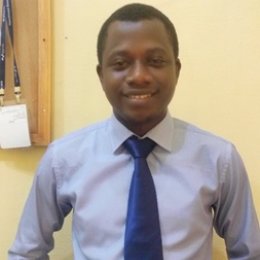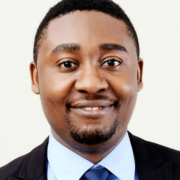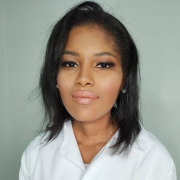How did you become interested in research relating to Hypertension?
I became interested in hypertension research right from my first exposure to cardiovascular physiology during my undergraduate days. My interest was further stimulated when I witnessed an eclamptic woman during a clinic visit and this formed the basis for my Ph.D. research.
Describe your research & the program/lab (info of your supervisor) that you are in?
My research is focused on models of experimental preeclampsia and possible interventions that could reverse this condition such as targeting the mineralocorticoid receptor. I am in the latter stages of my Ph.D. training in the laboratory of Prof. Lawrence Olatunji who is one of the leading scientists in the field of hypertension in my country.
What do you consider to be your substantial scientific contribution so far (provide Pubmed PMID if possible)?
My most significant scientific contribution to date showed that blockade of the mineralocorticoid receptor by low-dose spironolactone treatment ameliorates cardiometabolic disorders that are associated with a model of pathological pregnancy possibly via suppression of the plasminogen activator inhibitor-1 (PMID: 28480754).
What is your favourite manuscript from a lab other than your own (provide Pubmed PMID if possible)?
This manuscript is related to my research as it also models pathological pregnancy via testosterone administration (PMID: 21450421)
What facilities are essential for your research?
As a basic medical scientist in the field of hypertension, the most essential equipment is the animal blood pressure monitoring machine.
Where do your research strengths lie? Why? What are your research weaknesses? How will you improve?
I believe my biggest strength as a researcher is patience and tenacity which allows me to keep going even in the face of challenges. My biggest weakness growing up was an urge to always get tasks done quickly, without caring about associated consequences. However, my introduction to the world of science taught me to be patient and thoughtful about the consequence of any action.
Describe your unforgettable (proudest) moment in science, and the most challenging situation that you have had to overcome (lessons learnt) so far?
My proudest moment was when my mentor’s application for the ISH funding grant for mentors, which he chose me as candidate to be mentored, was selected by the ISH as one of the successful applications.
The greatest challenge was when I received my first unfavourable reviewers’ comment regarding a manuscript. However, with time, I’ve been able to handle such reviews.
At which conference did you first present? How was your experience?
My first presentation was at an annual conference of the Nigerian Physiological Society. It was an exhilarating experience making a presentation in front of revered professors and being able to provide answers to their questions.
What upcoming conferences will you be attending, and what is the furthest distance that you have traveled for a conference?
I intend to attend the upcoming ISH conference (Hypertension Beijing 2018). The furthest I’ve travelled for a conference was the Seoul for the 2016 ISH conference.
How did you learn about ISH/NIN and its activities?
I learnt about the ISH/NIN activities via my mentor/supervisor in 2014 after which I became a member.
What area(s) do you wish to specialize in the future?
I wish to continue along the path of pregnancy hypertension, to be able to elucidate the molecular mechanisms behind possible interventions.
Who is your role model in Science? Why?
My mentor/supervisor Prof. Lawrence Olatunji, for his dedication to science and commitment to the development of younger scientists.
What are your scientific goals? Advise for talented emerging scientists?
My goal is to be able to develop an acceptable intervention for pregnancy hypertension. My advice for emerging scientists is to remain focused and unwavering in their pursuits.





















